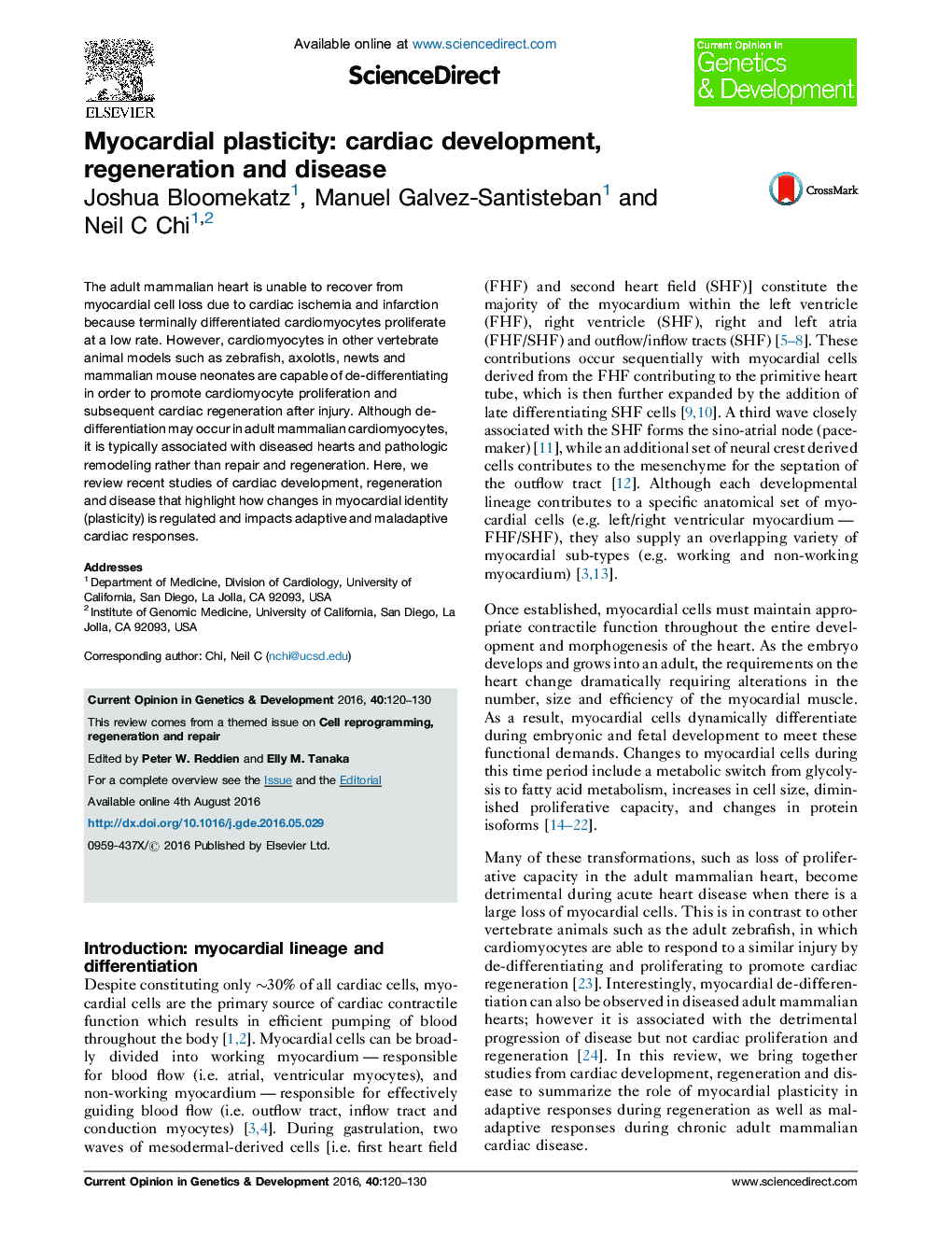| Article ID | Journal | Published Year | Pages | File Type |
|---|---|---|---|---|
| 5892982 | Current Opinion in Genetics & Development | 2016 | 11 Pages |
Abstract
The adult mammalian heart is unable to recover from myocardial cell loss due to cardiac ischemia and infarction because terminally differentiated cardiomyocytes proliferate at a low rate. However, cardiomyocytes in other vertebrate animal models such as zebrafish, axolotls, newts and mammalian mouse neonates are capable of de-differentiating in order to promote cardiomyocyte proliferation and subsequent cardiac regeneration after injury. Although de-differentiation may occur in adult mammalian cardiomyocytes, it is typically associated with diseased hearts and pathologic remodeling rather than repair and regeneration. Here, we review recent studies of cardiac development, regeneration and disease that highlight how changes in myocardial identity (plasticity) is regulated and impacts adaptive and maladaptive cardiac responses.
Related Topics
Life Sciences
Biochemistry, Genetics and Molecular Biology
Developmental Biology
Authors
Joshua Bloomekatz, Manuel Galvez-Santisteban, Neil C Chi,
